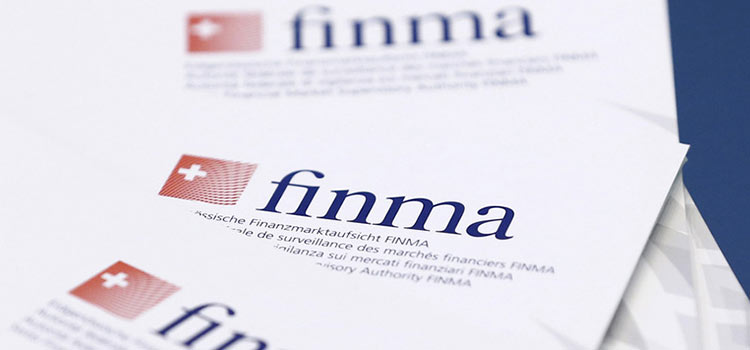FINMA Manual - Regulation of initial coin offerings

1 Basis
FINMA admits the innovative potential of distributed ledger technology and blockchain technology. It approves, welcomes and supports all efforts to develop and implement blockchain solutions in the Swiss financial centre.
Lately there has been a noticeable increase in initial coin offerings (ICOs), either conducted in Switzerland or offered from this country. ICOs are a digital form of mobilising capital and raising funds from the public.
They exclusively take place using distributed ledger technology or blockchain technology. "Token sale" or a "token-generating event" are also the terms to be applied in this matter.
Under the regular procedure for ICOs, financial sponsors will transfer a certain amount of cryptocurrency to a blockchain-generated address supplied by those organizing the ICO project.
In return, financial sponsors receive blockchain-based coins or other tokens connected with a specific project or company run by the ICO founders or creators.
The circumstances of structuring ICOs from technical, functional and business points of view vary explicitly from offering to offering. There is no universal and integral definition.
2 Regulatory treatment
ICOs are currently not administered or controlled by any specific regulation, either in world-wide terms or in Switzerland.
Equity and debt capital-raising, deposit-taking and the activities of financial intermediaries are governed by existing laws that protect creditors, depositors and investors and which ensure that financial markets operate correctly and duly.
Swiss legislation on financial markets is based on principles; one such principle is technology neutrality.
Consequently, gathering funds for one’s own account without a platform or issuing company acting as an intermediary is unregulated from a supervisory point of view in cases where repayment is not obliged, payment instruments have not been issued and no secondary market exists.
However, due to the main purpose and particular features of ICOs, different links to current regulatory law may exist depending on the structure of the services provided.
The foregoing concerns the following fields, namely:
• Provisions on combating money laundering and financing of terrorism: the Anti-Money Laundering Act applies where the creation of a token by an ICO organizer involves issuing a payment instrument. If this is the case, other supervisory issues may be applicable to third parties, especially to professional cryptobrokers or trading platforms which conduct exchange transactions or transfers with tokens (secondary trading with tokens).
• Provisions of Banking law: accepting public deposits where an obligation towards participants arises for the ICO vendor because of the ICO generally generates the requirement for a banking licence.
• Provisions on securities trading: a licensing requirement to operate as a securities dealer may exist where the issued tokens qualify as securities (e.g. derivatives).
• Provisions prescribed in collective investment schemes legislation: potential links to collective investment schemes legislation may arise where the assets raised as part of the ICO are managed from outside.
Due to the close proximity in some areas of ICOs and token-generating events with transactions in regular financial markets, the probability arises that the scope of application of at least one of the financial market laws may include and encompass certain types of ICO model.
This is also the case for ICO activities which aim to circumvent those provisions. Owing to the wide variety in structure of ICO models, FINMA can only carry out a conclusive regulatory assessment in specific cases.
Currently, FINMA is assessing a number of such cases. Where financial market legislation has been breached or circumvented, enforcement proceedings will be initiated.
FINMA does not conduct legal assessments of ICOs outside of the area of financial market legislation (e.g. the Swiss Code of Obligations and/or tax law).
Launching ICOs
Legal entities or natural persons who intend to start an ICO have to ensure that they comply with the requirements stipulated in the relevant financial market laws. Thus, FINMA recommends parties interested in launching an ICO to inform themselves in timely manner about the statutory provisions applicable to their business plan as prescribed by financial market legislation.
Information for investors
Coins or tokens purchased as part of an ICO may be subject to high price volatility. Often ICO projects are at an early stage of development, which results in a number of ambiguities regarding the financial and implementation aspects involved.
FINMA can not eliminate the possibility that ICO activities may be fraudulent, especially taking into account current market developments. It has therefore issued a general warning about increased fraudulent activities by providers of fake cryptocurrencies.





























































